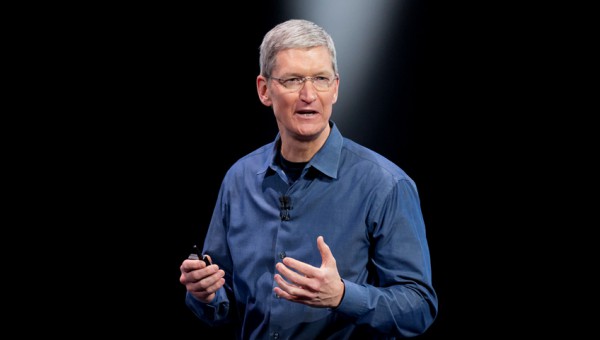Tim Cook is absolutely right

Some documents are historically significant. They mark moments, comment on them, in manner demanding future citation and even use in courts or classrooms. That's how I read Apple CEO Tim Cook's "Open Letter to Our Customers", about breaking iPhone encryption. His exposition spotlights seminal moment in the United States of America: Government's further expansion of powers encroaching indiviuals' rights to privacy and one company standing up and saying "No".
Some people will scoff at my comparison, but it truly is what I see. Cook is like Rosa Parks, refusing to take a seat at the back of the bus—or in this instance behind one court judge and the FBI. Cook and Apple stand up for us all. I applaud law enforcement's efforts to protect us from terrorism but tyranny shouldn't be the means; taking away Constitutionally-given freedoms to protect them. Tim Cook is right.
Encryption is an increasingly contentious topic, which illuminance increased following the Dec. 2, 2015 San Bernardino, Calif. shooting that has been classified as an act of terrorism. Law enforcement can't break the encryption on a key piece of evidence, an iPhone. Cook already is on record opposing backdoors made available to federal agencies. Yesterday, U.S. Magistrate Judge Sheri Pym ordered compliance with the FBI's request to break into the smartphone.
Cook says that Apple has cooperated with law enforcement to a point, but balks at what investigators now seek:
The FBI wants us to make a new version of the iPhone operating system, circumventing several important security features, and install it on an iPhone recovered during the investigation. In the wrong hands, this software—which does not exist today—would have the potential to unlock any iPhone in someone’s physical possession.
The question everyone should ask: Is this moment about one investigation or attempt to expand powers for many others? Is this the precedent that changes everything? I ask because this incident isn't isolated, with respect to mobile device privacy protections and government demands that companies like Apple break them.
Cook's position is certain:
The FBI may use different words to describe this tool, but make no mistake: Building a version of iOS that bypasses security in this way would undeniably create a backdoor. And while the government may argue that its use would be limited to this case, there is no way to guarantee such control...
The government suggests this tool could only be used once, on one phone. But that’s simply not true. Once created, the technique could be used over and over again, on any number of devices. In the physical world, it would be the equivalent of a master key, capable of opening hundreds of millions of locks—from restaurants and banks to stores and homes. No reasonable person would find that acceptable.
Cook calls capitulation a "dangerous precedent" and refers to the FBI's expansion of powers as "unprecedented". I am no Constitutional lawyer, but as a citizen protected by the U.S. Constitution and as a journalist writing about the tech sector for more than 20 years, I must side with Apple—and I applaud the company's defiance.
For More Perspective: "Why Apple is right to reject the order to unlock a killer's phone"
Cook presents greater case for refusing the court order, such as undermining the broader security of iOS. Further, "government’s demands are chilling", he contends. "The government could extend this breach of privacy and demand that Apple build surveillance software to intercept your messages, access your health records or financial data, track your location, or even access your phone’s microphone or camera without your knowledge".
If, as law enforcement publicly states, the San Bernardino shooting spree is a single act of terrorism, where is the imminent risk that justifies protecting us all? Urgency to save many might justify one instance of capitulation—unless Apple's CEO is correct and accessing one time is for all time, and compliance here establishes precedent that other tech companies must follow.
"Opposing this order is not something we take lightly", Cook writes. "We feel we must speak up in the face of what we see as an overreach by the U.S. government. It would be wrong for the government to force us to build a backdoor into our products. And ultimately, we fear that this demand would undermine the very freedoms and liberty our government is meant to protect".
Tim Cook is absolutely right.
Photo Credit: Apple